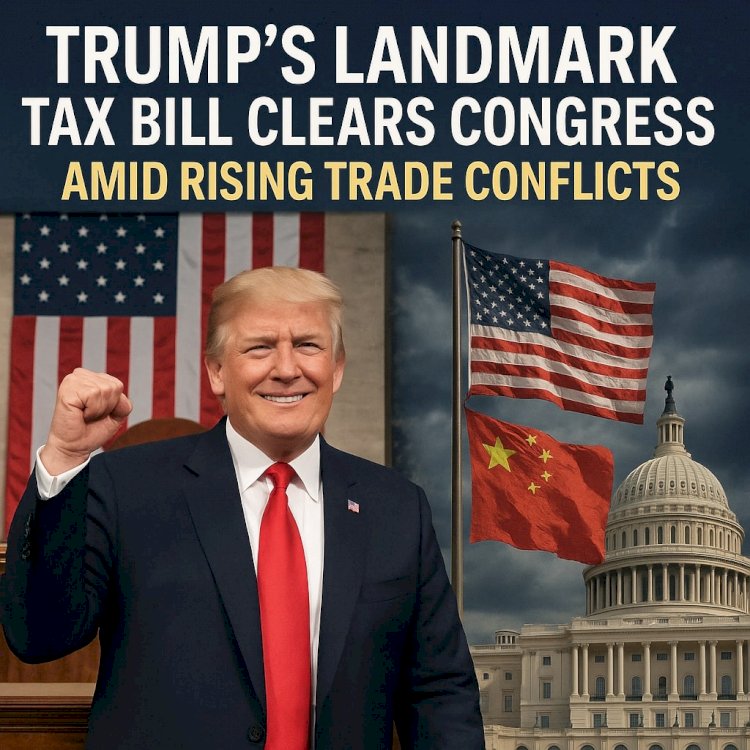Trump’s Landmark Tax Bill Clears Congress Amid Rising Trade Conflicts

July 4, 2025 — In a major legislative achievement, President Donald Trump’s expansive tax and spending bill, dubbed the "One Big Beautiful Bill," has passed through Congress. After a razor-thin vote in the Senate, where Vice President JD Vance cast the deciding vote, the House of Representatives approved the bill by a slim margin of 218 to 214. This marks a significant victory for Trump’s administration during his second term.
Key Features of the Tax and Spending Package
The bill is a sweeping 900-page document that overhauls multiple aspects of U.S. fiscal policy:
-
Permanent Tax Cuts: It locks in $4.5 trillion worth of tax reductions originally introduced in 2017, while adding new tax deductions related to tips, overtime pay, and auto loans. The legislation also boosts the child tax credit and broadens tax breaks for businesses.
-
Increased Spending on Security: The package includes $350 billion targeted at border security efforts, including funds to expand detention facilities and hire more immigration officers. It also provides $25 billion for missile defense systems and raises military spending.
-
Cutbacks on Welfare: Significant reductions to Medicaid and other welfare programs are included, a move that could affect millions of Americans reliant on these services. Analysts estimate the bill may increase the federal deficit by $3.3 trillion over the next decade.
Despite the projected fiscal challenges, business leaders have welcomed the bill, emphasizing its potential to stimulate economic growth and encourage investment.
Trade Disputes Cast a Shadow
While the bill’s passage is a domestic win, ongoing trade tensions are escalating. The U.S. has imposed sweeping tariffs on goods imported from Canada and Mexico, prompting retaliatory tariffs from both neighbors. This tit-for-tat exchange has disrupted supply chains and raised concerns among North American businesses.
Meanwhile, the trade war with China continues as the U.S. imposes higher tariffs on Chinese products, met with reciprocal actions from Beijing. These developments have heightened global economic uncertainty and sparked debates about the long-term effects on international trade relations.
Market Responses Mixed
Financial markets reacted with volatility following the bill’s approval. The U.S. dollar initially gained strength on the back of strong employment figures, delaying bets on Federal Reserve interest rate cuts. However, investor confidence waned as tariff tensions resurfaced, causing declines in stock futures and a pullback in the dollar’s gains.
Political Fallout and Future Outlook
This legislative win solidifies Trump’s influence over the Republican Party and sets the tone for the upcoming midterm elections. The bill fulfills several promises made during his campaign, notably on tax relief and border enforcement. However, welfare cuts and increased deficits may provide ammunition for critics and opposition lawmakers.
As President Trump prepares to sign the bill into law, attention will shift to the challenges of implementing its provisions and navigating the complex web of international trade relations. The coming months will be critical in assessing the bill’s impact on the U.S. economy and America’s role on the global stage.

 content-team
content-team 


















